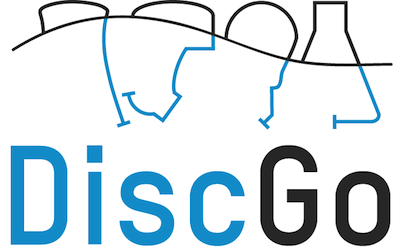Governance of Discontinuation of Sociotechnical Systems
The international research project on the ‘Governance of Discontinuation of Sociotechnical Systems’ (short: DiscGo) was funded by a grant from the second round of the Open Research Area Scheme (ORA) by four European national research funding agencies, the Agence Nationale de la Recherche (ANR), Deutsche Forschungsgemeinschaft (DFG), Economic and Social Research Council (ESRC), and the Nederlandse Organisatie voor Wetenschappelijk Onderzoek (NWO). It provided €9 million to fund ten collaborative research projects over three years, among which the DiscGo project was one. Project leaders in Twente were Prof Stefan Kuhlmann and Dr Peter Stegmaier.
The project has since then been continued by Peter Stegmaier on the basis of own resources.
This project aimed and still aims at a better understanding of the governance of the abandonment of socio-technical systems. It asked what discontinuation means as a problem of action for policy-makers. So far, the governance of socio-technical systems has preferentially been associated with advancement and innovation. Discontinuation of socio-technical systems is, at most, discussed as regime change, innovation setback or failure—as if advancement and innovation was the only direction in which socio-technical development and governance would go.
The DiscGo research consortium consisted of research groups at the University of Sussex, Brighton (United Kingdom) with Prof Stirling and Prof Geels, the TU Dortmund University (Germany) with Prof Weyer, the Unité Science en Société (SenS) at the Institut Francilien Recherche Innovation Société, IFRIS, Paris (France) with Prof Joly, and the University of Twente, Enschede (The Netherlands). The UT based group coordinated the consortium.
For original purposes focus was on the four particular cases of
(1) commitments to phase out nuclear power from its then major role in the energy sectors of several countries worldwide, with others ceasing earlier-planned nuclear expansion; discontinuation efforts have been accelerating since the Fukushima Daiichi nuclear disaster, Spring 2011;
(2) a major trend in automotive drive engineering to replace fossil fuel combustion technology by (battery) electric engine technology, a trend that has been speeding up since the global economic recession in the late 2000s;
(3) the synthetic pesticide DDT which was banned for agricultural use worldwide under the Stockholm Convention in 2004;
(4) the phase-out of the incandescent light bulb technology through the EU regulation 244/2009, based on the Eco-Design of Energy-Using Products Directive 2009/125/EC, started in the EU in 2009.
Each case exemplifies in different ways the policy pace, political will, and institutional momentum required in order to transform wider governance environments so as to achieve such large-scale shifts in socio-technical infrastructure. This project reconstructs the links between the main types of discontinuing transition pathways, actors and interactions in the four case studies. They reveal key connections between discontinuation, innovation, and active policies politically organising and shaping socio-technical change.
Recent foci are:
(5) Discontinuation of Sustainable Technologies (DiscoST)
(6) Court action as discontinuation efforts against fossil industries: Climate Litigation vs. Slapp (DiscCourt)
(7) Exit from gas and coal as governance challenges (EU)
(8) Ban of nitrogen (NL etc.)
(9) Discontinuation of Passenger Trains Services and Infrastructures (Brazil).
Key Publications
Stegmaier, P., Kuhlmann, S., Joly, P.-B., & Stirling, A. (2025). Technologies of Discontinuation—Towards Transformative Innovation Policies (in preparation)
Koretsky, Z., Stegmaier, P., Turnheim, B., & van Lente, H. (Eds.). (2023). Technologies in Decline: Socio-Technical Approaches to Discontinuation and Destabilisation. Routledge (Open Access)
Stegmaier, P. (2023). Conceptual aspects of discontinuation governance: an exploration. In Z. Koretsky, B. Turnheim, P. Stegmaier, & H. v. Lente (Eds.), Technologies in Decline: Socio-Technical Approaches to Discontinuation and Destabilisation (pp. 78-115). Routledge (Open Access)
Stegmaier, P. (2023). Aftercare, or Doing Less with Discontinuation Niche Governance. In F. Goulet & D. Vinck (Eds.), New horizons of innovation. Doing with less, doing without (pp. 268-288). Elgar
Liersch, C. C., & Stegmaier, P. (2022). Keeping the forest above to phase out the coal below: The discursive politics and contested meaning of the Hambach Forest. Energy Research & Social Science, 89, 1-19. https://doi.org/https://doi.org/10.1016/j.erss.2022.102537
Stegmaier, P., Visser, V. R., & Kuhlmann, S. (2021). The incandescent light bulb phase-out. Exploring patterns of framing the governance of discontinuing a socio-technical regime. Energy, Sustainability and Society, 11, 1-22. https://doi.org/https://doi.org/10.1186/s13705-021-00287-4
Stegmaier, P., Kuhlmann, S., & Visser, V. R. (2014). The Discontinuation of Socio-Technical Systems as Governance Problem. In S. Borrás & J. Edler (Eds.), Governance of Systems Change (pp. 111-131). Edward Elgar
Book Series
Destabilisation, Discontinuation and Decline as Horizons for Transformation
Series editors: Peter Stegmaier, Knowledge, Transformation and Society (KiTeS) group, University of Twente, the Netherlands, Bruno Turnheim, Laboratoire Interdisciplinaire Sciences Innovations Sociétés (LISIS), Université Gustave Eiffel, France, Lea Fu?nfschilling, Department of Sociology and CIRCLE, Lund University, Sweden, and Frédéric Goulet, Senior Researcher, Centre de cooperation Internationale en Recherche Agronomiqe pour le Dévelopemment (CIRAD), France
For further information, please contact:
